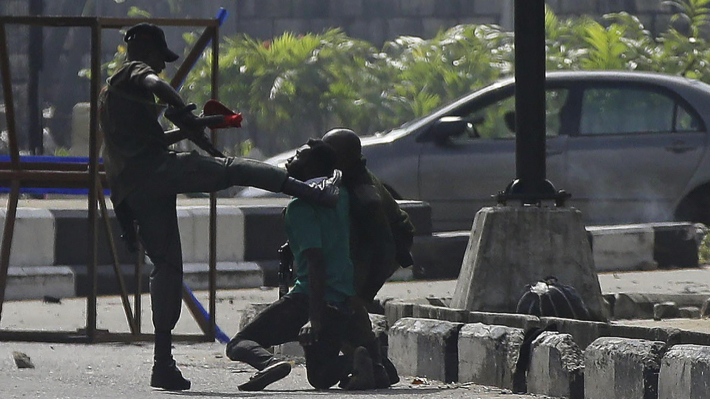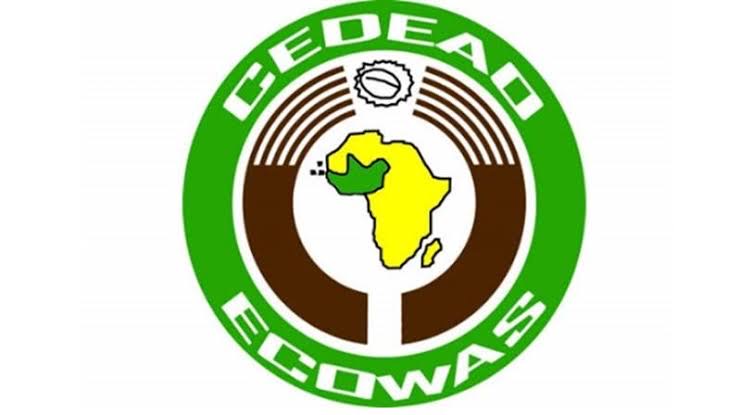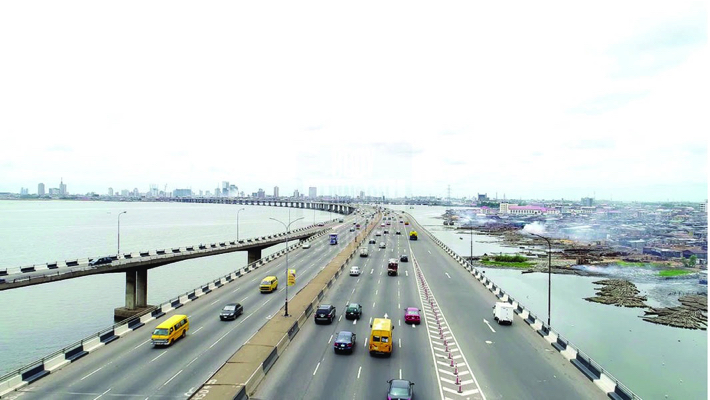Security forces preserving Buhari regime murdered 115 South-East residents in four months: Amnesty International

Nigerian security forces have committed a catalogue of human rights violations and crimes under international law in their response to spiralling violence in southeast Nigeria, carrying out a repressive campaign since January which has included sweeping mass arrests, excessive and unlawful force, and torture and other ill-treatment, said Amnesty International.
“The evidence gathered by Amnesty International paints a damning picture of ruthless excessive force by Nigerian security forces in Imo, Anambra and Abia states,” said Osai Ojigho, Country Director at Amnesty International.
Nigeria’s government has responded with a heavy hand to killings and violence widely attributed to the armed group calling itself Eastern Security Network (ESN), the armed wing of the Indigenous People of Biafra (IPOB), a pro-Biafra movement. According to government officials, the ESN killed dozens of security operatives and attacked at least ten public buildings, including prisons, police stations, and other public buildings from January to June. In response, security forces comprising military, police, and Department of State Services (DSS)have killed dozens of gunmen, as well as civilians where attacks have been committed.
Eyewitnesses told Amnesty International that the security forces have engaged in excessive use of force, physical abuse, secret detentions, extortion, burning of houses, theft, and extrajudicial executions of suspects. Human rights groups estimated that the death toll of violence between January and June 2021 in Anambra, Imo, Abia, and Ebonyi states might run into the hundreds. The police said ESN fighters killed 21 of its personnel in Imo state alone.
Amnesty International carried out an extensive investigation to document the human rights violations and crimes under international law in Anambra, Imo, Ebonyi and Abia states from January 2021. The organization documented 52 incidents of unlawful killings and 62 cases of arbitrary arrest, ill-treatment and torture. Media reports, video and audio recordings reviewed show that the Nigerian security forces also employed excessive force and other unlawful means to address the rising violence.
Spiralling violence
From January 2021, gunmen suspected to be ESN militants launched a series of attacks on government infrastructure, including prisons and public buildings, killing several police officers.
Amnesty International condemned these attacks and called on authorities to bring the perpetrators to justice.
Nigerian security forces launched security operations in June, primarily targeting ESN militants or those perceived as such to decimate the group.
Amnesty International documented at least 115 persons killed by security forces between January and June 2021. Many relatives of the victims told Amnesty International that they were not part of the militants that were attacking security agents. Many of the victims were deposited at government hospitals in Imo and Abia state. According to several hospital sources all the victims deposited by the police had bullet injuries.
For instance, in two of the cases documented by Amnesty international, the victims were targeted with no apparent justification:
• Uguchi Unachukwu, a German-based businessman was killed by soldiers on 31 May at a checkpoint near Owerri airport on his way out of the country. The police are yet to investigate the crime.
• Mathew Opara, a 45-year-old businessman, was shot by soldiers on 25 May 2021 in Orji, near Owerri. His family said the military acknowledged the killing but did not launch an investigation or offer any apology.
Unlawful and arbitrary arrests and ill-treatment
In May 2021, the Imo state government announced the arrest of at least 400 people allegedly linked to the violence. Amnesty International’s investigation indicates that most of them were randomly picked up in their homes and off the street and had nothing to do with ESN.
Some victims told Amnesty international that they were arrested while walking in the street, at a public bar or simply for having birth marks or tattoos on their body.
A 37-year-old man who was arrested by the police at Orji, in Imo state, on 26 May 2021 told Amnesty International that he was arrested because his colleague had a birth mark on his shoulder.
The police said the mark was a sign of membership of IPOB. “The police arrested us on the road. They asked us to lie down on the road. They checked our clothes to see if we have tattoo. I had none but one of us had a birth mark. He tried to explain but the policemen started beating him. They tied our hands backwards and took us in their van to the police station,” he said.
Another 36-year-old man told Amnesty International: “I was arrested on my way back from work. The policemen put me in a bus along with other young men including several students and an NYSC member in his uniform. They labelled us ESN members and took us to their station at the Fire Service. We were severely beaten. They said they will waste [kill] all of us. I told them that I work for the state government. I was asked to pay N20,000. I negotiated and finally paid N15,000. They allowed me to go at about 10.30 pm. I do not know what happened to the other people”.
On 23 July, soldiers from the 82 Divisional headquarters of the Nigeria Army, Enugu, invaded Akpawfu, Amagunze and Akpugo communities in Enugu state and arrested at least 20 residents after gunmen killed five soldiers and burnt their vehicle near the community days earlier. Eyewitnesses told Amnesty International that dozens of soldiers moved from house to house, arresting youths on suspicion that they had links with ESN militants.
“What is needed is an impartial and open inquiry to determine what happened and bring to justice all those suspected of criminal responsibility in fair trials before ordinary civilian courts and without recourse to death penalty”, says Osai Ojigho.
We have recently deactivated our website's comment provider in favour of other channels of distribution and commentary. We encourage you to join the conversation on our stories via our Facebook, Twitter and other social media pages.
More from Peoples Gazette

Politics
Katsina youths pledge to deliver over 2 million votes to Atiku
“Katsina State is Atiku’s political base because it is his second home.”

Politics
PDP unveils 200-member campaign council for Edo 2024 guber election
The advisory council has seven eminent members of the state.

Africa
ECOWAS moves to tackle drug abuse in Sierra Leone, other countries
ECOWAS said the workshop was also to support efforts to tackle drug abuse and provide resources and strategies for member states, particularly Sierra Leone.

Lagos
FG to resume resurfacing of Third Mainland Bridge: Official
She said that the exact dates for the renewed construction would be announced soon.

Agriculture
Gov. Makinde inaugurates cassava mechanisation production, processing plant in Oyo
He called on all stakeholders to support the project, saying its success depends on the collaboration.

Africa
Heavy rains, landslides kill dozens in Tanzania, Kenya
Mr Majaliwa, who disclosed Thursday, added that 236 had also been injured in the flood.
![Fuel queue at NNPC filling station [Credit: ThankGod Sabastine/Peoples Gazette]](https://gazettengr.com/wp-content/uploads/Screenshot_20230320-070535_WhatsAppBusiness.jpg)
States
Fuel price hits N1,000 per litre as scarcity pervades Kaduna
While most fuel stations were not dispensing fuel, others increased their prices to between N750 and N810 per litre as motorists struggled to buy the product.








